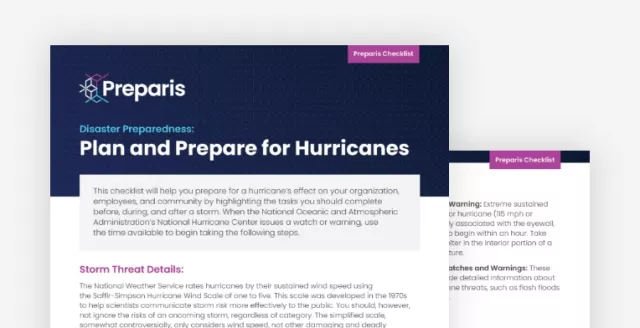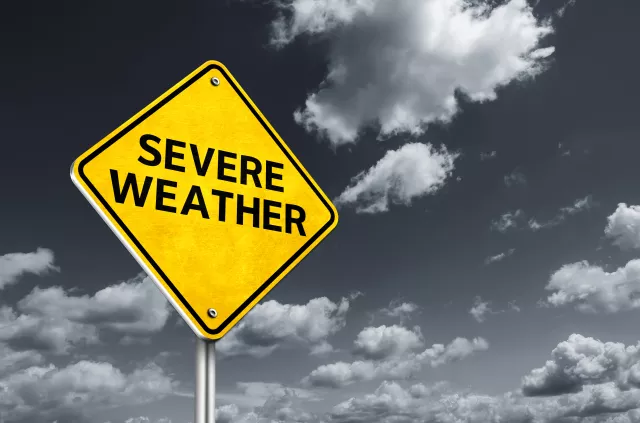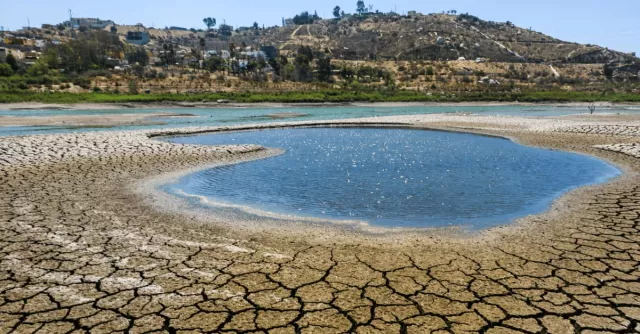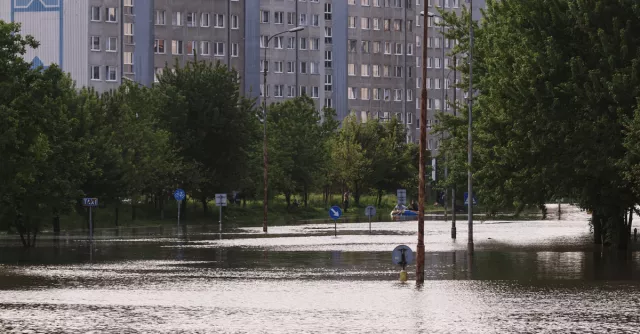How to Prepare Your Business for Hurricane Season

Businesses are responsible for their business operations' safety and continuous function, and business disruptions like hurricanes can impact the bottom line. Therefore, executives must be aware of the dangers of natural disasters and the sheer destructive potential of natural cataclysmic events.
One of the most destructive natural disasters is the hurricane. Unpredictable, rapidly rotating storm systems, hurricanes pose real existential threats to businesses. Businesses are responsible for practicing emergency preparedness, sheltering their businesses, and implementing incident management throughout hurricane season.
Fortunately, there are many preventative measures business leaders can take to protect their businesses during hurricanes, and using digital incident management solutions and establishing business continuity plans is more straightforward than ever before.
Preparing Your Business
Business leaders must be prepared for hurricanes to disrupt their businesses. In 2023, hurricane-related disasters accounted for $3-4 billion in damages. So, how do you prepare for a hurricane? Here is a series of steps and actions to take to protect your business:
1. Plan, Prepare, and Practice
Plan, prepare, and practice. The three Ps are the cornerstone of any disaster recovery plan. The only way to be ready for a disaster is to already have a plan in place. Weather forecasts are a powerful tool, and NOAA has never been better at predicting storms. Although, it becomes much harder to keep business operations going if you have no reaction plan in place when a hurricane strikes.
Your business continuity plan should include identifying and consolidating critical business infrastructure, backing up data at offsite storage centers, and removing essential equipment from the at-risk location.
These are all elements of disaster preparedness that must be implemented before a disaster occurs. Attempting to accomplish these goals under pressure and duress is never a good strategy. It is dangerous and will inevitably result in the loss of irreplaceable business assets. A plan to manage your mission-critical assets should be well in place before a disaster occurs.
Always practice your plan and include backup and contingency plans in the event of unforeseen circumstances.
2. Back Up Data
Data backups are an essential part of disaster preparedness. A loss of crucial data decimates business operations. As a business owner, you should have backups of all of your data anyway. It is especially vital to have backups in the event of a disaster.
Having access to your backed-up data makes the recovery process exponentially easier. Find a data backup method that you are familiar with and comfortable using. Then, practice backing up data and make sure you know how the process works before a disaster happens.
3. Protect the Physical Site of Your Business
Stormproof the physical location of your business. If there is equipment or material that you can't relocate, take measures to minimize potential damages. Uninterruptible power supplies, like batteries and generators, are an excellent way to continue operating in the event of power loss. Make sure that you have plans in place to recover your workplace in the unfortunate event that it is destroyed or unusable.
Board up windows and doors and secure any other glass that could become hazardous during a disaster. Also, if you have the opportunity, conduct your business away from flood plains and zones to eliminate the risk of flash floods and water damages to your business. Finally, if a shutdown is imminent, have a plan in place to safely do so and prepare an alternate workplace if necessary.
4. Work Remotely
A silver lining of the COVID-19 pandemic is that you may already be well-versed in remote work. If you are working remotely, you and your employees are safer from the dangers of a destructive storm. If you are not operating remotely, consider doing so in the event of an impending disaster.
Working remotely is far safer than trying to reach a physical business during a destructive storm. If a disaster occurs, have contingencies in place so you can operate critical business functions remotely. With modern technology and the advice of leading industry professionals setting up remote working conditions has never been easier.
5. Stay Informed and Outsource Recovery
Do not wait to act in the event of an impending storm. Hesitating to recognize the dangers these storms pose costs valuable time and leads to the loss of resources and lives. On the other hand, preemptively activating recovery plans gives you time to thoroughly implement your disaster plan and prepare for a full recovery.
Stay ahead of the danger by using an emergency alert system. During a disaster, these systems are crucial to give you every advantage to plan and react intelligently, offering a streamlined response to disaster situations and making communication safe and easy.
Staying Safe During Hurricane Season
During storm season business owners should consider:
-
Employees working remotely in the area of a disaster and how they will be affected.
-
Will remote workers be able to continue to work?
-
How will you know if employees are safe, and how will you communicate with them?
-
What to do in the event of an evacuation.
-
Does your business continuity plan anticipate social distancing?
With the hurricane season forecast anticipating above-normal storm activity, make sure your business continuity plan is up to the challenges of disaster recovery during a pandemic.
Be Prepared
There are many ways to prepare your business for disaster. Implementing technological solutions that make business recovery a seamless and manageable experience has never been easier. Remember to have a business continuity plan in place and practice it. A system is only as functional as much as you practice it.
Expect the unexpected. In the face of impending disaster, do not hesitate to act. The quicker you leap into action, the higher the chances of a complete recovery. If you're in an active hurricane area, consider bookmarking NOAA's hurricane page for the best and latest data about storms that are forming.
Don't hesitate: Reach out to protect your business today.




